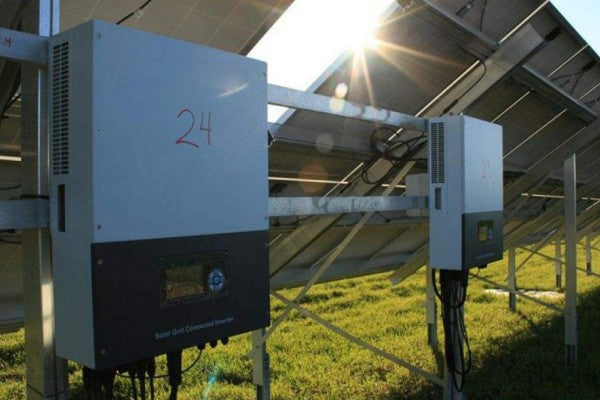
In the world of renewable energy, solar power has emerged as a popular and eco-friendly choice for homeowners and businesses alike. Solar energy systems typically consist of essential components such as solar panels, inverters, charge controllers, and batteries. While most people understand the roles of solar inverters and charge controllers, there's often confusion about whether an inverter can be connected directly to a charge controller without a battery. In this blog post, we'll delve into this topic, exploring the technical aspects, potential risks, and alternative solutions.
Understanding Inverters and Charge Controllers
Solar inverters are the heart of any solar energy system. They are responsible for converting the direct current (DC) power generated by solar panels into alternating current (AC) power that can be used to power household appliances and feed excess electricity back into the grid. On the other hand, solar charge controllers regulate the charging process of batteries in the system, ensuring efficient charging and preventing overcharging or deep discharging.
The Purpose of Batteries in Renewable Energy Systems
Batteries play a crucial role in solar energy systems, serving as a storage medium for excess electricity generated by the solar panels. They store energy during periods of abundant sunlight and discharge it when the panels aren't producing enough power. Batteries provide stability to the system by delivering a consistent power supply, especially during cloudy days or at night when solar panel output is minimal. Moreover, batteries enhance system resilience, allowing for backup power during grid outages.
Can an Inverter Be Connected Directly to a Charge Controller Without a Battery?
Now, let's address the burning question: Can you connect an inverter directly to a charge controller without a battery? The short answer is no. In most cases, it's not recommended to connect an inverter directly to a charge controller without a battery. There are several reasons for this:
1. Technical Considerations: Inverters and charge controllers are designed to work in tandem with batteries. The battery acts as a buffer, absorbing fluctuations in power output and demand. Without a battery, the inverter may not receive the necessary stability and might experience performance issues.
2. Risk of System Damage: Connecting an inverter directly to a charge controller without a battery can potentially damage both components and compromise the entire system's functionality. Inverters and charge controllers rely on the battery's voltage to maintain proper operation and protect against voltage spikes.
3. Limited Power Supply: Without a battery, the power supply from the solar panels will only be available when the sun is shining. This means no electricity will be available during cloudy periods or at night when the panels aren't generating power. Having a battery ensures a continuous power supply, even during these low or no solar generation periods.
Exploring Alternative Solutions
While it's not advisable to connect an inverter directly to a charge controller without a battery, there are alternative solutions worth considering:
1. Energy Storage Options: Instead of traditional batteries, you can explore other energy storage options such as lithium-ion batteries or flow batteries. These alternatives offer different advantages, including higher energy density, longer lifespan, and faster charging capabilities.
2. Hybrid Systems: Hybrid solar systems combine the benefits of both batteries and capacitors. Capacitors can provide short bursts of power, which is useful for handling sudden spikes in energy demand. Hybrid systems offer improved efficiency and can help optimize the use of available resources.
3. Emerging Technologies: As solar technology continues to evolve, new advancements are being made. One such innovation is the integration of power electronics directly into solar panels, eliminating the need for external inverters and charge controllers. While these technologies are still in the early stages, they hold promise for simplifying system designs and improving overall efficiency.
Conclusion
In summary, connecting an inverter directly to a charge controller without a battery is generally not recommended. Batteries play a vital role in solar energy systems, providing stability, backup power, and optimal performance. Bypassing the battery can lead to system damage, limited power supply, and decreased efficiency. It's essential to follow manufacturer guidelines and consult with solar energy professionals to ensure the safe and effective operation of your solar system.
Remember, investing in a reliable solar inverter, solar charge controller, and suitable battery is key to harnessing the full potential of solar power and enjoying the benefits of a sustainable and cost-effective energy solution for years to come.


0 comments